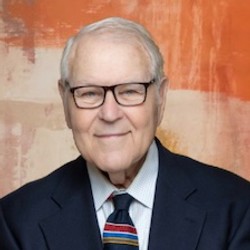One of my first assignments as a brand-new lawyer back in 1970 was to gather information and draft responses to discovery requests in a case we were defending. In the process of doing this, I became very familiar with the facts of the case, and the law was not complicated. The work I was doing was very extensive and time consuming and I knew the other side would be doing the same kind of work.
Before I finished my assignment, it was obvious to me that I was working on a case which should be settled. So, I went to the lawyer who had assigned me the work and naively asked him why we were doing all of this work because I thought it was a case which obviously should be settled. I asked him why we didn’t just call up the other lawyer to see if he would be interested in attempting to settle the case. He told me we couldn’t do that because it would make us look weak to be the first to bring up anything about a settlement. I didn’t tell him what I was thinking, but it was that the lawyer on the other side was probably equally concerned about being the first to mention settlement.
I saw this same kind of thing going on in other cases and it made me wonder if any other profession would engage in so much work before even trying to find out if it was necessary. This got me thinking about a way to promote early settlements of disputes, or a way to explore settlement possibilities before so much time and expenses were incurred.
I served in the Oklahoma Legislature through the 1970’s and 1980’s and from time to time I would think about a way to foster and encourage early settlements of lawsuits. Then, one day I was watching a program on OETA about two tribes or clans of indigenous people in Central America who had been engaged in a blood feud for generations. Members of both sides of the dispute had been injured and killed, but the feud continued because neither side wanted to be the first to approach the other about making peace. Ultimately a respected elder member of a neighboring tribe offered to try to make peace for them. They didn’t refer to him as a mediator, of course, but they used the term “peacemaker”, and he was able to help bring about a solution to the decades long feud that had been going on.
As I watched this television program about the peacemaker, I began to think again about another way civil disputes in our country could be resolved. I knew there would always be a place for trials, but I was sure that many disputes should not have to go to trial if we could just find a way to use peacemakers.
I wanted to file legislation to establish what we now call mediation, but didn’t know where to start. On other bills I had authored I had surveyed what other states had done on the same matter and always found that to be helpful. In this case, though, I couldn’t find any other state where mediation bills had passed and become law or were even being considered. When we did pass our own Dispute Resolution Act in 1983, I thought we would be the first, but as it turned out Pennsylvania had passed one just before ours became law.
In my experience the simpler a bill is, the easier it is to pass. As originally passed, ours contained only six sections, 1801-1806 of Chapter 37, Title 12. Section 1801 is a brief statement of the purpose of the Oklahoma Dispute Resolution Act. Section 1802 is a definitions section which defines only six terms, all of which you would be familiar with today. Section 1803 is our attempt to impart some structure and stature to the concept of mediation and give it a jumpstart by involving various governmental entities and our law schools in the administration of mediation, and by placing the Administrative Director of the Courts in charge of mediation services. We didn’t foresee that an entire industry of private mediation would develop.
Section 1804 provides for written consent to enter into mediation, the rights and obligations of the parties participating and the confidentiality of the proceeding. We didn’t fully appreciate it at the time, but the provision for confidentiality was extremely important to the success of the process of mediation. It makes full and honest participation by the parties possible.
Section 1805 makes clear that all reports, case summaries, notes or other records are privileged and confidential and that no part of the proceeding will be a matter of public record. This section also protects the mediator and those assisting him or her from any liability unless the mediator was found to have a malicious purpose or a willful disregard of the rights of any party engaged in the mediation. To my knowledge, no lawsuits have ever been filed against any mediators in Oklahoma.
Finally, Section 1806 provides for tolling of the statute of limitations during mediation.
After I left the legislature, the District Court Mediation Act was passed in 1998, and it lead to the Choice in Mediation Act, passed in 2002.
By providing for mediation programs through the counties, cities, other governmental entities, and law schools, we were trying to plant a seed which we hoped would grow and expand to what we now call private mediation. I don’t know if that alone is the reason, but private mediation has flourished beyond anyone’s expectations since the Dispute Resolution Act was passed.


